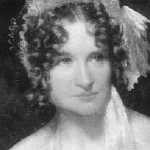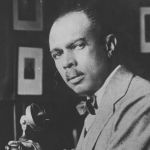Toll for the brave—
The brave! that are no more:
All sunk beneath the wave,
Fast by their native shore.
Eight hundred of the brave,
Whose courage well was tried,
Had made the vessel heel
And laid her on her side;
A land-breeze shook the shrouds,
And she was overset;
Down went the Royal George,
With all her crew complete.
Toll for the brave—
Brave Kempenfelt is gone,
His last sea-fight is fought,
His work of glory done.
It was not in the battle,
No tempest gave the shock,
She sprang no fatal leak,
She ran upon no rock;
His sword was in the sheath,
His fingers held the pen,
When Kempenfelt went down
With twice four hundred men.
Weigh the vessel up,
Once dreaded by our foes,
And mingle with your cup
The tears that England owes;
Her timbers yet are sound,
And she may float again,
Full charg'd with England's thunder,
And plough the distant main;
But Kempenfelt is gone,
His victories are o'er;
And he and his eight hundred
Must plough the wave no more.



















Comment form: